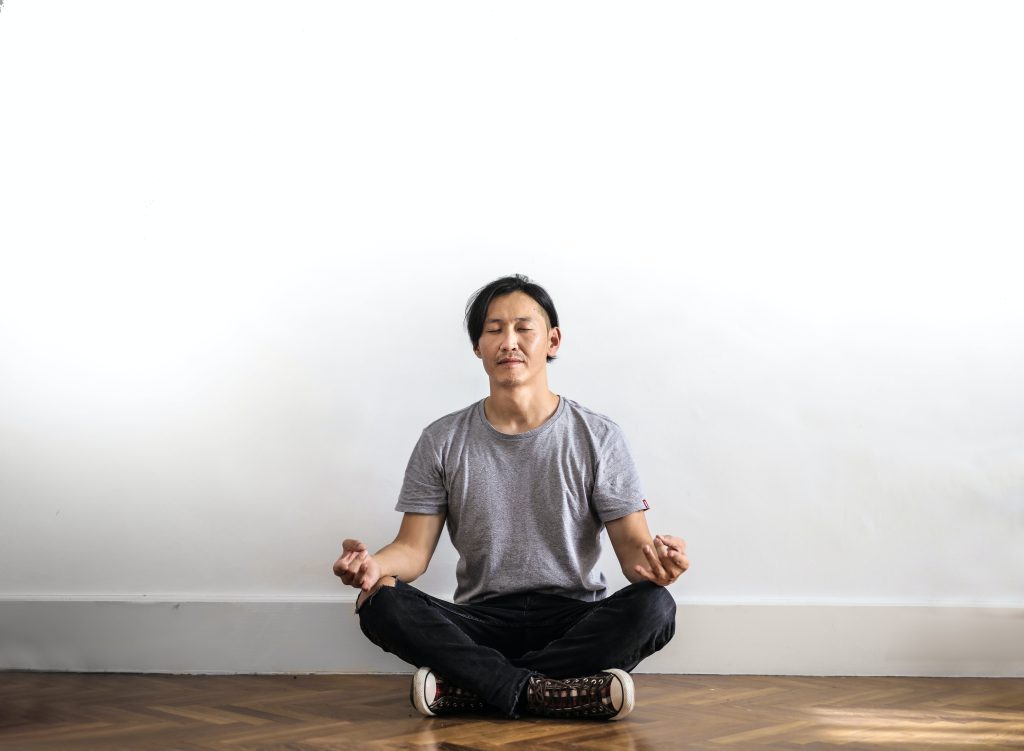Have you ever considered how a small change in mindset may have a significant influence on your life? Have you considered the life-changing impact of being present in the moment? Mindfulness emerges as a guiding light; we go into the depths of mindfulness in this blog, unraveling its meaning, discovering its essence, and understanding its actual benefits. Join us on a journey that offers not only insights but a path to greater well-being and a more purposeful lifestyle, even as you navigate the exciting possibility of finding the right house and lot for sale in Imus Cavite. Let us begin on this life-changing journey together.
Unveiling Mindfulness Meaning
You might be wondering, what is mindfulness? Mindfulness is the way of life; it is the practice of bringing one’s attention to the present moment and being fully aware of what’s going on around you, in your body, and, most importantly, in your mind. It involves maintaining an open mind and accepting the present moment as it is, letting your thoughts come and go without judgment.
Being mindful is being totally present in every part of your life, you are existing in reality and completely experiencing the richness of the moment rather than running away from it. Whether you’re eating, taking a stroll in the park, or just sitting in peaceful contemplation. You are aware, and accepting your presence in the real world.
The Essence of Mindfulness
After knowing the definition of mindfulness, you already know that the concept of mindfulness is offering individuals a path to a more centered and fulfilling existence. There are a lot of significant effects that mindfulness can offer in your life. To help you fully understand its essence, let’s explore the core of mindfulness.

Embarking on Mindfulness Meditation
One of the most powerful tools to cultivate mindfulness is through meditation. This intentional mental shifting promotes calm and clarity while also helping to reduce the chaos of anxiety and constant thoughts. This involves dedicating a specific time to focus on the present moment, typically by paying attention to your breath, bodily sensations, or your thoughts without judgment. Since mindfulness meditation has been a major part of Buddhism for centuries, it can be combined with different techniques from other traditions.
There are a lot of ways to engage in meditation, such as choosing an environment that’s quiet, taking a comfortable seat, as well as focusing on your breath. So, without judgments, acknowledge any thoughts or distractions and gently return your attention to your breathing. This process helps train the mind to remain present and attentive.
Benefits of Meditation
What are the benefits of mindfulness, you may ask? Adding mindfulness can help you in your daily routine since it has numerous effects in every part of your life. Here are the benefits of meditation:
Enhanced Focus and Concentration
Consistent mindfulness training has been associated with enhanced cognitive abilities, such as increased focus and attention span. People can become more adept at doing everyday tasks quickly and clearly by practicing mindfulness.
Improved Emotional Well-Being

Mindfulness helps individuals to observe their emotions without becoming immersed in them. This non-judgmental awareness promotes emotional resilience, helping individuals respond to challenging situations with a greater sense of calm and objectivity.
Better Physical Health
Mindfulness is not solely confined to mental well-being; it also positively influences physical health. Research found that mindfulness can reduce blood pressure, alleviate chronic pain, and boost the immune system.
Enhanced Sleep Quality
The calming effects of mindfulness can contribute to improved sleep quality. By quieting the mind and reducing stress, individuals often find it easier to relax and achieve restful sleep.
Alleviation of Anxiety and Depression
Mindfulness has showed potential in lowering anxiety and depression symptoms. The practice encourages individuals to approach their thoughts with acceptance, diminishing the power of negative thinking patterns.
Increased Self-Awareness
Mindfulness fosters a deep connection with oneself. By regularly checking in with emotions, thoughts, and bodily sensations, individuals develop a profound understanding of their inner workings, leading to personal growth and self-discovery.

Jon Kabat-Zinn and the Mindfulness-Based Stress Reduction (MBSR) Approach
Jon Kabat-Zinn is a pioneer in the field of mindfulness, he developed Mindfulness-Based Stress Reduction, and he found that this structured approach combines mindfulness meditation and yoga to help individuals cope with stress, pain, and illness. According to studies, Mindfulness-based stress reduction can considerably lower stress levels, promote emotional stability, and boost mental health in general. MBSR has gained recognition worldwide for its effectiveness in promoting mental and emotional well-being.
Immersing Yourself in the Art of Mindfulness
Mindfulness is more than just sitting on a meditation cushion; it is a way of life. Incorporating mindfulness into daily tasks can result in a significant improvement in well-being. Approaching each action with attentive awareness, whether eating, walking, or working, may convert everyday routines into chances for peacefulness and self-discovery.
How to Practice Mindfulness:
You already have the idea on what are the benefits of mindfulness, in the previous statements. Incorporating mindfulness into your daily life doesn’t require hours of meditation. So, consider the following suggestions while you immerse yourself in mindfulness practice:
Begin Small:
If you’re new to mindfulness, begin with brief sessions. As you feel more comfortable with the practice, gradually increase the duration.
Make a Sacred Space:

Choose a calm and comfortable location for your mindfulness practice. This might be a room corner or a location in nature where you can go for a few moments of silence.
Be patient:
Mindfulness is a skill that requires practice. Be kind to yourself as you negotiate the practice’s obstacles and rewards.
Integrate Mindfulness into Daily Tasks:
Mindfulness is not restricted to formal meditation. Incorporate mindfulness into ordinary tasks such as cleaning dishes, walking, or even commuting. This cultivates a constant level of attentiveness throughout the day. Here are some more mindfulness ideas to add to your daily routine:
- Mindful Breathing
Make time each day to concentrate on your breathing. Consider how your breath enters and leaves your body. This easy practice may be done anywhere, making it a good place to start with mindfulness. - Body Scan Meditation
Set aside some time to scan your body from head to toe, paying attention to any feelings or tensions. This technique increases awareness of physical sensations and can aid in the release of stress. - Mindful Eating
Savor each bite of food. Take note of the food’s tastes, textures, and experiences. This exercise not only improves meal satisfaction but also cultivates conscious awareness. - Walking Meditation
Incorporate mindful walking into your everyday routine. Pay attention to the sensations of each step, your body’s movement, and the sounds around you. Walking attentively might help you feel more at ease and focused.
Capturing the Present Moment
As cliche as it may sound, living in the present moment is really important. We may reduce unnecessary stress and anxiety about the past or the future by focusing our consciousness on the moment, which is the only time over which we genuinely have control. Accepting the present is important because it opens the door to a more purposeful and happy life. There are a lot of reasons why being present in the moment is so important
1. Liberation from Past Burdens:

Living in the present frees us from the constraints of the past. We frequently bear the burden of previous errors, regrets, or missed chances, enabling them to cast a shadow over our present. Understanding the significance of the present moment is understanding our ability to break free from these obligations and give ourselves the gift of a new beginning.
2. The Power of Now:
Life develops in the present moment, and acknowledging its significance is a way to tap into the power of now. We have the ability to make decisions, take actions, and influence our reality in the present. The past cannot be changed, and the future cannot be predicted, but the present is where we can actively engage in the unfolding of our lives.
3. Heightened Awareness:
Living in the present moment promotes heightened awareness. It’s about being completely immersed in the present moment, whether it’s the flavor of food, the warmth of the sun, or the smile of a loved one. This increased awareness transforms routine actions into profoundly rich and deep experiences.
4. Connection with Others:
The significance of the present extends to our interpersonal connections. We listen more intently, talk more honestly, and form stronger connections when we are totally present with people. The present moment is transformed into a sacred sanctuary where the beauty of human connection can develop.
5. Alleviation of Future Anxiety:
Anxiety is frequently caused by worries about the future—what could happen, what we need to do, or what obstacles lie ahead. Living in the present moment alleviates worries about the future. Instead of obsessing over uncertainties, we may approach the future with a clear mind and a sense of readiness by focusing on the present.
6. Mindful Decision-Making:
The current moment serves as the canvas on which we will create our future. Understanding its relevance enables deliberate decision-making. It is about making decisions based on current reality, taking into account current conditions, and aligning actions with immediate objectives and ideals.
7. Cultivation of Gratitude:

When we see and appreciate the benefits, large and small, that surround us in the present moment, thankfulness becomes a natural outpouring. Living in the present moment allows us to see the abundance in our lives.
8. Joy in Simple Pleasures:
The present moment is a treasure trove of simple pleasures that sometimes go unrecognized when our brains are obsessed with the past or future, whether it’s the beauty of nature, the laughter of a kid, or the warmth of a cup of tea.
9. Stress Reduction:
Living in the present moment is an effective stress reliever. When we immerse ourselves in the present moment, the weight of the past and fears about the future fade away. Being present is a deliberate choice, and in that choice, we find reprieve from the demands of life.
To Wrap it Up
It’s easy to get caught up in the storm of past regrets or future fears amid our fast-paced lives. Mindfulness, on the other hand, urges you to return your thoughts and focus to the present moment. You are so liberated from the constraints of the past and the uncertainties of the future. The present now becomes a refuge in which you may experience life as it unfolds, free of the weight of what has been or what might be.
If you incorporate mindfulness into your everyday life, you will most certainly experience an improvement in your general well-being as well. Mindfulness is a lengthy and transforming practice, not a fast remedy. So, take a deep breath, notice how the air enters and goes out of your body, and immerse yourself in the practice of mindfulness. You’ll find not just a respite from life’s pressures, but also a profound connection to the richness of your own existence, in the present now.


